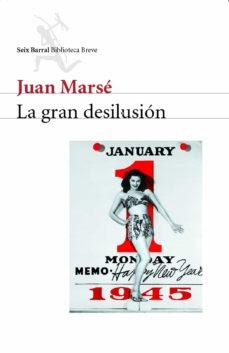
Original language: español
Year of publication: 2004.
Valuation: advisable.
A little difficult to give evaluations on books like this. This is a curious literary experiment that only makes sense if we previously recognize Juan Marsé and his work, which we have reported on in this blog, and the enormous influence they represent on literature in Spanish. A militant and committed writer, with controversial and not always well-processed opinions, but, according to what has been read here, they were coherent until the end and not very servile – something that caused him some problems – with the established power. In this sense, Marsé maintained an unappealable line of vindication of two fundamental issues: literary essence associated with reality and the environments he walked in and knew, vindication of origin, of class condition even when success could shake the principles.
Source: https://unlibroaldia.blogspot.com/2024/11/juan-marse-la-gran-desilusion.html


